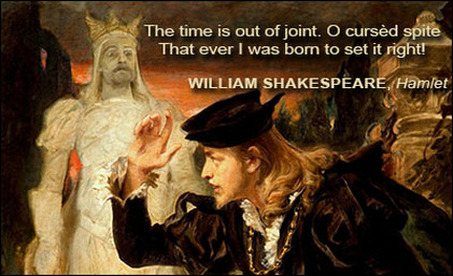Remo Vinzens, Vinzens Remo, theater, Shakespeare's Best, William Shakespeare, Hamlet Remo Vinzens, On stage, theatre, Remo Vinzens actor, 2012, stageplay, Remo Vinzens, leading actor, Theateraufführung
Shakespeare's Best (2012)
|
September 2012 Location/dates/startime and more...
|
|
About Shakespeare:
Surprisingly for the world's greatest playwright, we actually know very little about Shakespeare's life. What few details we have come from church records, land titles and the written opinions of others. Very little is known about young Shakespeare. We know that Shakespeare was baptized on April 26, 1564 and it is assumed that he was born on April 23, 1564. We also know that in 1582 at age eighteen, Shakespeare married Anne Hathaway, an older women who was twenty six at the time. Shakespeare left Stratford for London to make his fortune roughly fours years later. Shakespeare headed to London sometime in 1586, there already was an established community of playwrights.By 1595, Shakespeare was suffiently successful to be named as one of the more senior members of the Lord Chamberlain's men, an acting company that performed frequently before court. This was no small honor; this prominent theatre company later became the royal company called the King's Men, making Shakespeare an official playwright to the King of England. By 1596, Shakespeare was so successful as a playwright that his family was finally granted a Coat of Arms which amongst other things allowed Shakespeare to call himself a "gentleman". Shakespeare's fortunes were also improving during this time; in 1597 he purchased the second largest house in Stratford which he called New Place and began buying up land around Stratford. One year later, Shakespeare became a ten percent owner of the new purpose built theatre in London, the famous Globe Theatre were so many of his plays would later be performed. By 1611, Shakespeare retired, returning to Stratford and in 1616 Shakespeare died, famously bequething his second-best bed to his wife, often seen as a sign that his marriage may not have been happy. Shakespeare's works are often divided into four periods beginning with what is referred to as an experimental period starting around 1591 and ending around 1593 which includes Titus Andronicus, Love's Labour's Lost, The Two Gentlemen of Verona, The Comedy of Errors and The Taming of the Shrew. |
The second period ending around 1601, marks the establishment of Shakespeare and includes the tragedy Romeo and Juliet, the comedies, The Merchant of Venice, A Midsummer-Night's Dream, Much Ado about Nothing, The Merry Wives of Windsor and the history plays, Henry IV, Parts I and II, Henry V, Richard II, King John and Julius Caesar. The third period ending around 1610 marks perhaps the apex of Shakespeare's work with the tragedies, Hamlet, Othello, Macbeth, King Lear but also comedies such as Twelfth Night, All's Well that Ends Well and the epic history play, Antony and Cleopatra. The final period ends around 1611 with the plays, Cymbeline, Henry VIII and romances such as The Tempest and The Winter's Tale. The Shakespeare we read today comes from The First Folio of 1623 written by fellow actors John Heminge and Henry Condell to preserve Shakespeare's legacy. Amazingly, no original manuscripts survive reflecting the fact that many of these manuscripts were written purely for performance and were not regarded as pieces of literary work. There is also no general consensus on when all the plays were first performed. It might surprise readers to know that many of Shakespeare's plays, especially in the experimental period were hardly original, borrowing plot features from earlier plays. Likewise with his history plays, Shakespeare compresses events and does not follow history too closely to add to the drama. However borrowing plots and taking liberties with historical facts was not uncommon in Shakespeare's time and his skill for language, imagery, pun and his creative adaption of myth and history have set Shakespeare apart as arguably the greatest playwright of all time. |






